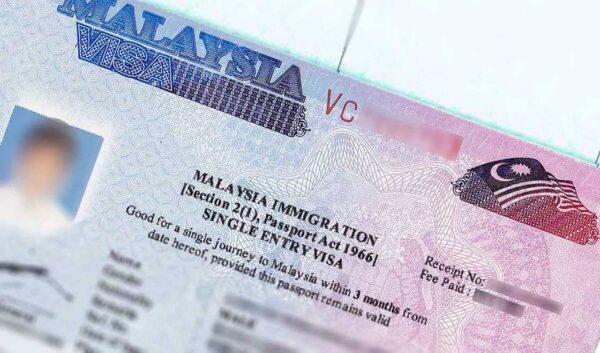There’s nothing like having a job that brings stability and fulfilment, and being an immigration officer is no doubt one of those jobs. If you’re passionate about public service, immigration, and national security, this might be a cue to start on your journey to becoming an immigration officer. Immigration officers play a vital role in managing border security, enforcing immigration laws, and creating safe movement systems for people across international boundaries. The question now is, how do you become an immigration officer? There are lots of things that go into being an immigration officer, of which we will give a detailed guide.
What Are The Roles of an Immigration Officer?
Before going down a career path, it’s a no-brainer that you need to have an understanding of what it entails, and the same applies to the immigration officer role. The following are the key duties of an immigration officer:
1. Enforcing Immigration Laws
One of the many things immigration officers are in charge of is enforcing immigration laws. They must ensure that anyone who is crossing a country’s borders complies with the legal entry and residency requirements. Enforcing immigration laws involves ensuring people don’t violate immigration laws, and if they do, they have the right to detain them. Immigration officers are also in charge of deportations while collaborating with legal teams and federal agencies to process cases of non-compliance.
Being an immigration officer is an admirable job. They help maintain the rule of law in the country while protecting its lawful residents and citizens. Their work ensures that immigration policies are implemented fairly and effectively while making the immigration system a trusted one.
2. Screening Travelers
Do you know those people in uniform who check your bags when traveling? Yes, those people are immigration officers. This set of officers is the first line of defence at airports, seaports, and land border crossings. They are in charge of preventing immigration fraud while ensuring that whoever wants to pass the border complies with immigration laws. The responsibility of screening travelers includes immigration status verification. They also check the validity and authenticity of passports, visas, and other travel documents while overseeing immigration processes. Furthermore, they scrutinize these documents for any sign of forgery while they make cross-references with the information on the immigration database.
They basically ensure that individuals meet the legal requirements before entering or leaving the country. The role of an immigration officer is undeniably important in preventing unauthorized access while curbing threats to National security. Detecting illegal activities like smuggling and human trafficking is one of the things immigration officers in charge of screening travelers have to do for national security.
3. Interviewing Applicants
Another key responsibility of immigration officers is conducting interviews with asylum applicants, tourists, and immigrants. They also conduct background checks and verify the intention behind making a visa application. Immigration officers may ask common embassy questions about your employment history, travel plans, family ties, reasons for seeking asylum, etc. Anyone who wants to work as an immigration officer must have good interpersonal and communication skills to interview candidates. Likewise, they must maintain professional customer service skills while at it.
4. Monitoring Country Borders
Immigration officers work outside of the usual office setting to ensure that things are in order at various borders and checkpoints. They inspect vehicles, cargo, and individuals trying to cross the border. Surveillance tools and physical inspection are the common ways immigration officers monitor and detect illegal crossings and suspicious activities. Over the years, the contribution of immigration officers to immigration affairs has greatly reduced the cases of unlawful activities like human trafficking and drug smuggling across countries' borders.
5. Collaborating with Other Agencies
When it comes to immigration affairs, immigration officers can’t do it alone. This is why they have to work alongside other government agencies to make national security a success. Most times, they work with customs, law enforcement, and the country’s security to address complex immigration issues.
Collaboration is especially important when dealing with cases of international crime, fraud detection, or human trafficking. Officers usually share intelligence, assist in investigations, and participate in joint operations to pursue criminal networks. This collaborative approach usually helps overcome immigration challenges while safeguarding the country.
How to Become an Immigration Officer

Being an immigration officer comes with exciting career opportunities. Also, it's an opportunity to make a meaningful impact in your country. However, you should know that this profession is a demanding role. To become an immigration officer, here are key steps to follow:
1. Research and Understand the Role
We’ve mentioned the different roles immigration officers play in immigration and national security at large. To begin your immigration officer career, you must understand each role. This will help you know what is best for you and how to make a better application. You can seek help from career consultants and people who are already in the field for additional guidance and to make your journey easier.
2. Meet Educational Requirements
No doubt, you need some level of education to become an immigration officer. However, educational requirements vary in different countries, but here are general education requirements:
- Having a high school diploma or its equivalent is a given, and it is usually the minimum requirement for most entry-level immigration officer positions.
- Advanced degrees in criminology, political science, law enforcement, public administration, or international relations can be leveraged if you really want to grow your career in this field.
- Fluency in multiple languages is a bonus and can help in dealing with diverse populations.
3. Check For Eligibility Criteria
To qualify for a position as an immigration officer, you must meet other criteria besides the educational checklist.
- Citizenship or Residency in the country you want to work in.
- Must be at least 18 years old at the time of application.
- A clean criminal record with no suspicious background history.
- Pass the physical fitness assessment to meet the physical demands of the job.
- Pass drug and medical exams to ensure they are fit for duty.
4. Search for Job Openings and Apply
Once you’re certain that you meet the academic and eligibility requirements needed for an immigration officer role, the next thing you want to do is to look for job openings. You can check out government websites or legitimate job sites for opportunity announcements. Don’t limit yourself to just immigration officer Job openings; you can also consider opening in government agencies such as customs, border protection, and even international embassies. Keeping up with recruitment events and career fairs will do you a lot of good. However, for a better chance at a great job as an immigration officer, apply for internship roles to help you get started.
Once you find a job opening that best suits your qualifications and career goals, go ahead to apply. Create your resume in a way that shows your relevant skills, such as your knowledge and interpretation of immigration laws, customer service experience, or language proficiency. You might also need to submit a cover letter, so ensure you give a detail on how passionate you’re about working in the immigration line. If you have an internship experience, state it and use it to your advantage. Make your application convince your hiring manager that you’re a good candidate for that role.
5. Pass the Selection Process
Firstly, it’s important to know that joining the immigration service has a competitive hiring process and only qualified applicants will be chosen. After the application process, you might have to go through the selection process to become an immigration officer. The selection process usually includes a series of tests and assessments. You have to take a written test that assesses your knowledge of immigration laws and regulations; you might also be tested based on general knowledge and language skills. An Interview panel is also common as you will be given the opportunity to articulate the motivation behind your application as they review your application.
Passing the physical fitness exams is an important aspect of your application. You might have to go through endurance and agility tests to see if you can cope on the job. The result of your background check is also a determining factor during the selection process. Ensure you have a clean criminal record, pass the drug test and meet the medical fitness requirements.
6. Complete Training
Learning never ends. Even after you've successfully passed the hiring process, you have to undergo training. Beyond what you've learned in school, you need hands-on experience that will help you adapt to the job easily. You might have to go through classroom training where you will learn immigration policies, criminal justice, border security protocols, illegal immigration, investigation techniques, and crisis management.
Shadowing professionals in the field is another training that you will undergo. This will help you see how everything you’ve learned is applied to real-life situations like document verification, interacting with travelers, and responding to security breaches. Also, you will be trained on how to use databases, technology, and surveillance tools. And once you've completed your training, then you're ready to take up the role of an immigration officer.
Career Path and Opportunities

There are different categories of immigration officers. Whether you're just starting or looking for better job opportunities, there's something for you. Being an immigration officer is a great occupation that can give you the platform you need for career groeth and also international exposure. You can check the following opportunities out:
1. Entry-Level Positions
Everyone has to start somewhere, and as an entry-level immigration officer, you’ll get hands-on experience with the essential duties of the job. In this role, you’ll be stationed at airports, seaports, or land borders, screening travelers, verifying documents, and monitoring borders. With all of this, you can build skills and prepare for the next phase and better opportunities.
2. Specialized Roles
Aside from the general immigration officer duties, there are specialized and advanced roles. These roles cover forensics, fraud detection, and dealing with refugees and asylum seekers. You need solid experience and a corresponding degree to work in this role. Whatever role you specialize in will help you build deep intelligence and solid experience in the field.
3. Leadership Roles
If you're the type that is interested in leadership roles, there are immigration roles that can help you achieve that. Talk of supervisors and managers who oversee teams and officers to ensure smooth operations. If you're going to work in a leadership role in immigration, then your decision-making and problem-solving skills must be exceptional. You have to come up with strategies for border security from time to time. Likewise, you also have to train recruits and manage complex cases. Note that to attain a leadership role, you have to start somewhere and build yourself slowly but steadily to the top.
4. International Exposure and Opportunities
One job that can get you the international exposure you need is the immigration officer role. As long as you have the qualifications and experience, you can work in embassies, consulates, or international organizations. These international roles include visa application management, collaborating with immigration agencies from other countries, and lots more.
Conclusion
The role of immigration officers cannot be overlooked in the society. Pursuing a career in immigration is a great commitment to serving and safeguarding the country. Irrespective of the immigration roles you're in, you'll surely excel at it as long as you pay attention to how the system works.
















